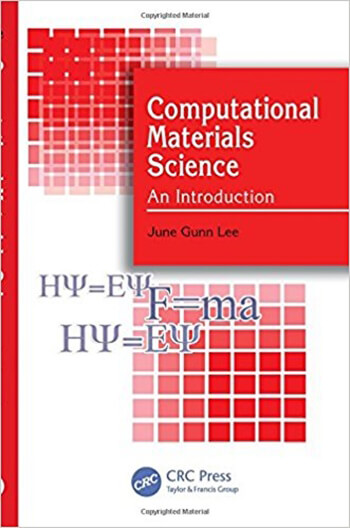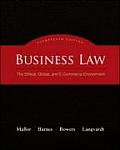Computational Materials Science An Introduction 1st Lee Solution Manual
$35.00 Original price was: $35.00.$26.50Current price is: $26.50.
Computational Materials Science An Introduction 1st Lee Solution Manual
This is completed downloadable of Computational Materials Science An Introduction 1st Lee Solution Manual

Product Details:
- ISBN-10 : 1439836167
- ISBN-13 : 978-1439836163
- Author: June Gunn Lee
Computational Materials Science: An Introduction covers the essentials of computational science and explains how computational tools and techniques work to help solve materials science problems. The book focuses on two levels of a materials system: the electronic structure level of nuclei and electrons and the atomistic/molecular level. It presents computational treatments of these system levels using molecular dynamics (MD) and first-principles methods, since they are most relevant in materials science and engineering.
After a general overview of computational science, the text introduces MD methods based on classical mechanics and covers their implementation with run examples of XMD and LAMMPS. The author discusses first-principles methods based on quantum mechanics at an introductory level, using illustrations and analogies to assist students in understanding this difficult subject. The book then describes the density functional theory (DFT)―the first-principles method that can handle materials practically. It also reveals how each orbital of electron leads to particular properties of solids, such as total energy, band structure, and barrier energy. The final chapter implements the DFT into actual calculations with various run examples via the VASP program.
Computational methods are contributing more than ever to the development of advanced materials and new applications. For students and newcomers to computational science, this text shows how computational science can be used as a tool for solving materials problems. Further reading sections provide students with more advanced references.
Table of Content:
Chapter 1 Introduction
1.1 Computational Materials Science
1.2 Methods in Computational Materials Science
1.3 Computers
References
Chapter 2 Molecular Dynamics (MD)
2.1 Introduction
2.2 Potentials
2.3 Solutions for Newton’s Equations of Motion
2.4 Initialization
2.5 Integration and Equilibration
2.6 Data Production
Homework
Further Reading
References
Chapter 3 MD Exercises with XMD and LAMMPS
3.1 Potential Curve of Al
3.2 Melting of Ni Cluster
3.3 Sintering of Ni Nano-particles
3.4 Speed Distribution of Ar Gas: A Computer Experiment
3.5 SiC Deposition on Si(001)
3.6 Yield mechanism of Au Nano-wire
3.7 Water Nano-droplet Wrapped by Graphene Nano-ribbon (GNR)
3.8 Stress-strain Behavior of Si-CNT Composite
Homework
References
Chapter 4 First-Principles Methods
4.1 Quantum Mechanics: The Beginning
4.2 Schrödinger’s Wave Equation
4.3 Early First-principles Calculations
Homework
Further Reading
References
Chapter 5 Density Functional Theory (DFT)
5.1 Introduction
5.2 Kohn-Sham (KS) Approach
5.3 Kohn-Sham (KS) Equations
5.4 Exchange-correlation (XC) Functionals
5.5 Solving Kohn-Sham (KS) Equations
5.6 DFT Extensions and Limitations
Homework
Further Reading
References
Chapter 6 Treating Solids
6.1 Pseudo-potential (PP) Approach
6.2 Reducing the Calculation Size
6.3 Bloch Theorem
6.4 Plane-wave (PW) Expansions
6.5 Some Practical Topics
6.6 Practical Algorithms for DFT Runs
Homework
Further Reading
References
Chapter 7 DFT Exercises with VASP
7.1 VASP (Vienna ab-initio Simulation Package)
7.2 Pt-atom
7.3 Pt-FCC
7.4 Convergence Tests
7.5 Pt-bulk
7.6 Pt(111)-surface
7.7 Nudged Elastic Band (Neb) Method
7.8 Pt(111)-catalyst
7.9 Band Structure of Silicon (Si)
7.10 Band Structure of Silicon (Si)-HSE06
7.11 Phonon Calculation for Silicon (Si)
7.12 W12C9-Co28-interface
7.13 Li2MnO3 Battery System with GGA+U Method
7.14 Using GUI for VASP Calculations
Homework
References
Appendix
Appendix 1 List of Symbols and Abbreviations
Appendix 2 LINUX Basic Commands
Appendix 3 Convenient Scripts
Appendix 4 The Greek Alphabet
Appendix 5 SI Prefixes
Appendix 6 Atomic Units
Index
People Also Search:
computational materials science and engineering
computational materials science an introduction
computational materials science an introduction 1st lee
Related products
Solution Manual
Auditing A Risk Based-Approach to Conducting a Quality Audit Johnstone 10th Edition Solutions Manual
Solution Manual
Solution Manual
Solution Manual
Solution Manual for Absolute C++, 5/E 5th Edition Walter Savitch
Solution Manual











